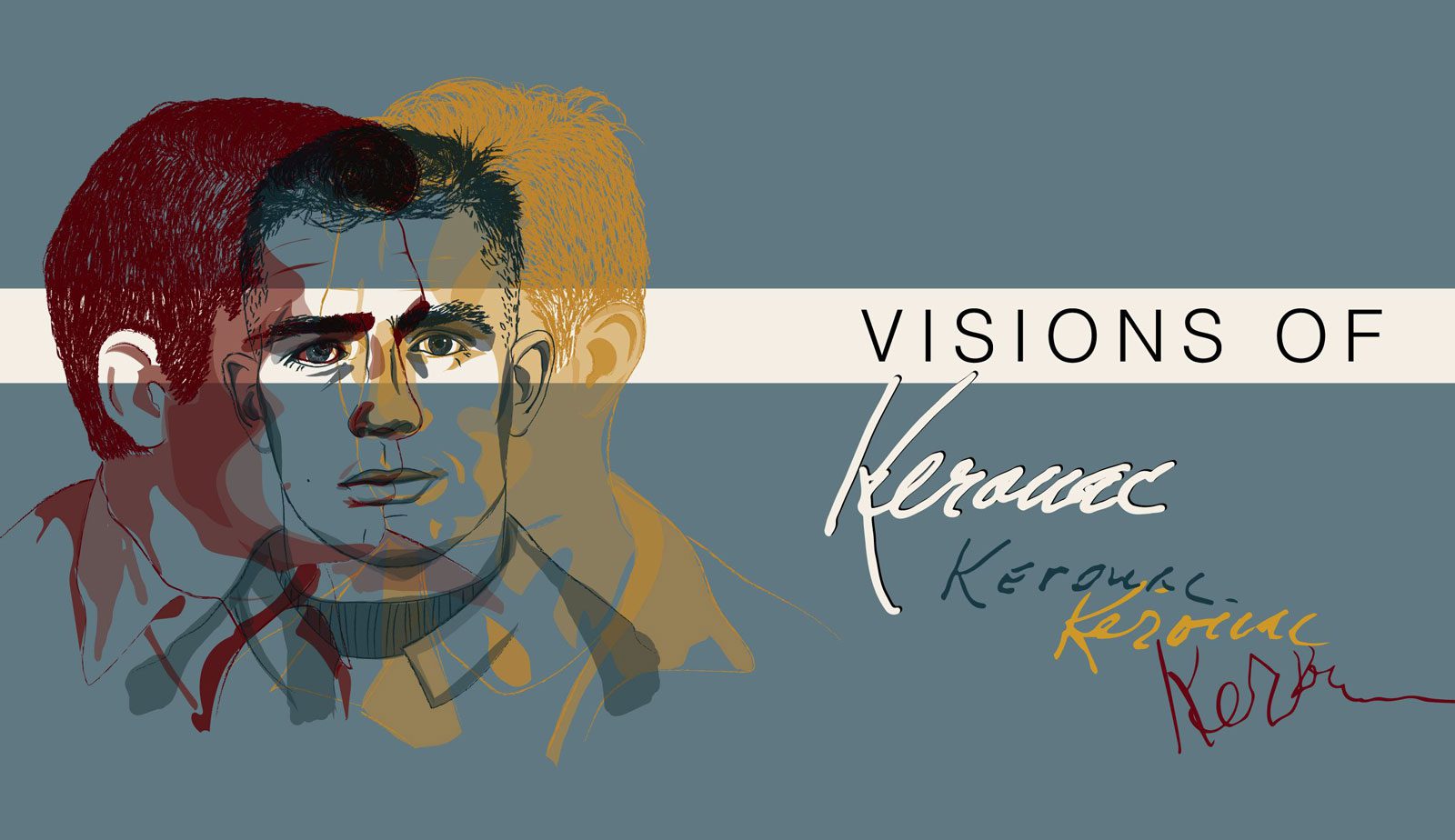
These audio clips are taken from a large of collection of Kerouac-related audio recordings owned by the University of Massachusetts Lowell. They are housed in the Kerouac Archive at the Center for Lowell History, and their complete catalog information is available through the Center. The public presentation of these clips is made possible by an exhibit planning grant from Mass Humanities. The catalog numbers from the Center for Lowell History are included parenthetically.
Click link to hear recording.
The novelist William S. Burroughs discusses the New England French dialect spoken by Jack and his French-Canadian parents, extended relatives, and friends in Lowell. Burroughs provocatively suggests that this unique dialect led Kerouac to often feel a sense of in-betweenness, a sense of being both inside and outside of groups or cultures, even nationalities. Is this sense apparent in his poetry and fiction? (Center for Lowell History catalog: KT-011 A1)
William S. Burroughs again speaks of Jack as moving between places and cultures. Burroughs notes that like many other 20th-century American authors and artists (T.S. Eliot, Gertrude Stein, Ernest Hemingway), Jack moved from the traditional social structures of a small town or city to an urban community that offered opportunity for artistic experimentation — places like New York City, London, and Paris. Perhaps Jack was always a migrant of sorts, always on the road. (Lowell Center for History Catalog: KT-011 A2)
3. Jack and Depression-Era Lowell
Gregory McDonald (1937-2008), a writer for the Boston Globe who interviewed Kerouac and many other artist and writers in the 1960s, comments on Depression-Era Lowell and the way it shaped Jack, his family, and his writing. In McDonald’s view, Jack could never shake the voices of his parents, teachers, and friends in Lowell who haunted him with guilt because he was able to make it out of the depressed mill town. (Center for Lowell History: KT-051 A2)
4. “Religion is your own broken heart”: Religion, the Depression, and Jack
Gregory McDonald (see above for relation to Kerouac) describes Jack’s complex relationship to the realm of religion. McDonald suggests that Jack’s work grows in part from a Catholicism that was itself deeply marked by the economic disaster of the Depression. (Center for Lowell History: KT-051 A2)
5. Homecoming: Returning to Lowell from War
Gregory McDonald (see above for relation to Kerouac) observes the importance of “homecoming” for young men and their communities during the World War Two and Korea eras, and how this common occurrence in mid-century America might have colored Jack’s experience. How was the author of On the Road shaped by friends, family, and others coming home from war-torn roads of Europe and the seas of the South Pacific? After all, Jack was part of what has sometimes been called the “Greatest Generation” of men and women who came of age during the Second World War. He represents, however, a different perspective on that generation and its experience. (Lowell Center for History Catalog: KT-051B)
6. Jack’s Patriotism and Relation to “The People”
McDonald (see above) discussing what he calls Jack’s “rightwing patriotism” and his corresponding “love the people.” (Lowell Center for History Catalog: KT-051B)
Steve Tsotakos (a childhood friend of Jack’s) recollects upon the Rex Lounge & Ballroom on Merrimack Street in downtown Lowell. The restaurant and ballroom were favorite late-night destination for Kerouac during his youth and descriptions appear in his work. The building later burned to the ground and was not rebuilt. (Lowell Center for History Catalog: KT-060B)
8. Mary Carney and Late-night Dancing
Red St. Louis (a childhood friend of Jack’s) tells about his and Kerouac’s late-night activities. St. Louis explains that Kerouac needed to be coerced into courting women, including one of his great loves, Mary Carney. (Lowell Center for History Catalog: KT-121B)

